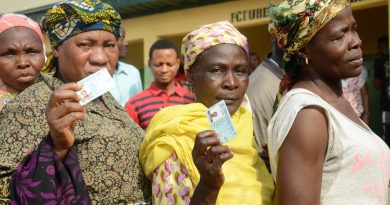Chatham House: Is Europe Prepared to Support Ukraine?
Sophia Alicea
Staff Writer
On March 1, Chatham House tackled whether Europe is ready to face the hardships of Russia’s war in Ukraine. The Chatham House of the Royal Institute of International Affairs is a renowned international affairs think tank based in London. They aim to create sustainably based solutions to foreign policy questions by facilitating thought provoking dialogue.
The event was organized by the Eastern European Studies Centre (EESC) and invited minds from throughout Europe to speak. Among the guests were Viktorija Čmilytė-Nielsen, speaker of the Lithuanian parliament; Tomas Janeliūnas, Chief Research Programme Officer for EESC; and Žygimantas Pavilionis, Chairman of Foreign Affairs Committee of the Lithuanian Parliament.
The speakers first addressed whether Europe is equipped to handle a protracted conflict in Ukraine and whether the European military sector can resupply North Atlantic Treaty Organization (NATO) nations’ own defenses while supporting Ukraine.
According to Janeliūnas, the effects of the conflict, such as high energy costs, are felt throughout Europe, while NATO members and the defense industry are under pressure to replenish their weapons stockpiles. Europe has just enough natural gas in reserve to get through the winter, and Ukraine is still receiving humanitarian and military assistance. The possibility of longer-term European commitment and providing more advanced weaponry to Ukraine is a topic frequently avoided. However, recent German compromise allowing Ukraine tanks suggests that Ukraine will receive sustained military support from important providers.
Janeliūnas claims that although Russia’s economy and military will weaken, Russia is still a threat. Janeliūnas emphasized the shift in Russian intentions, which he believes are crucial to examine. Russia’s invasion in Ukraine was initially a simple sweeping operation of territory, but is now a total war between Russia and the West. Čmilytė-Nielsen stressed this progression towards total war as troubling, as it may become a war between the West and authoritarianism.
The European Union (EU) reacted swiftly by placing sanctions, among other actions, on Russia. Additionally, within a week of the invasion, the United Nations General Assembly strongly denounced Russian aggression. Nonetheless, there were 35 abstentions, and only a few governments in Asia—Singapore, South Korea, and Japan—strongly supported Ukraine. China, India, and Indonesia have all resisted choosing a side. Additionally, according to Dr. Alex Vines, Director of the Chatham House Africa program, the change has been felt throughout much of Africa. He points out that 51 percent of the countries that abstained from voting at the UN to condemn Russia’s invasion were African nations, representing a partial return to the Cold War position of many African countries.
Before Russia’s invasion, European nations, including France and Germany, struggled to adjust to the region’s changing geopolitical landscape. The acts of Russia have fundamentally altered how Europe views its security stance. According to Jamie Shea, an associate fellow in the Chatham House International Security program, Germany revisited security policy within foreign policy for the first time in decades.
Panel experts discussed the environmental, food, and energy crisis facing Europe. In response to the Russian oil and gas supply disruption, Europe took looked for alternative gas sources and sped up its transition to renewable energy. Due to the breakdown of the supply of pipeline gas from Russia, Germany and some of its neighbors now obtain their energy from sources such as Asia, the Middle East, and sometimes Africa. Russia and Ukraine are two of the world’s largest producers of sources such as petroleum and fertilizer. The conflict has disrupted supplies for both industrialized and developing nations.
Finally, the expert panel examined a “new Ukraine” and international law’s relationship with the West. Ukraine has continued to operate despite over 14 million displaced persons and attacks on infrastructure, energy, and transportation. Ukraine’s President Volodymyr Zelenskyy has come to represent this solidarity and defiance. Prior to Zelenskyy, Ukrainian internal politics were highly polarized and the public accused officials of corruption. The panel explains that Zelenskyy’s strength lies in his ability to gain support for reform, eradicate corruption, and promote peace. Although repeatedly postponed, official recognition was offered to Kiev by the EU, making restricted membership possible in the future.
According to Orysia Lutsevych, a research fellow and head of the Ukraine Forum in the Russia and Eurasia program at Chatham House, the cornerstones of a Ukrainian victory are restoring territorial integrity, enforcing war criminal justice, and forcing the Kremlin to pay for devastation. It would seem premature to discuss war crimes, compensation, and punishment. The Russian Federation will be held accountable for its actions, said Ukraine’s Foreign Minister Dmytro Kuleba at a Chatham House event. “This is the only tool of civilization that is available to us to ensure that in the end everyone who made this war possible will be brought to justice,” he added.


